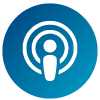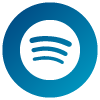011: Formalising practical skills
Meet Val Schaefer
Bachelor of Arts (with Distinction) – Major in Public Relations from the University of Southern Queensland
'I found that studying externally helped my professional role and vice versa. Everything I did in my professional role in tourism and marketing also fit in, and informed my university degree. They just went hand in glove really.'
Today we have Val Schaefer, Community Development Officer with Mission Australia, who's been in the Taree community since 1997 to take up a job with council.
Subscribe now on your favourite podcast platform:
Transcript
Download the Transcript here (PDF)
Intro 00:00
Hey there. Thank you for joining us for Six Degrees of Study an uneducational Podcast. Today we have Val Schaefer, Community Development Officer with Mission Australia, who's been in the Taree community since 1997 to take up a job with council. We want to show you how it's highly likely there's only six degrees of separation between you, the career, and the life you want. This is a six degrees podcast.
Donna Ballard 00:25
Hello, Val, thank you so much for joining us. I'll just quickly introduce. My name is Donna Ballard. I've just been appointed as the CEO of Taree Universities Campus. So I'm very keen to hear stories of other local people, their story of study, really so that people can relate to that. So thank you, Val, for being here today.
Val Schaefer 00:43
Thank you, Donna, you're new, I'm new. I've just recently started my new role as well, with Mission Australia and working closely on the MidCoast for Kids initiative, and also Communities for Children. So new roles for both of us.
Donna Ballard 00:58
Congratulations to you. We're both in the area of educating children, I guess and looking after the future generations.
Val Schaefer 01:04
Exactly. It's a good place to be.
Donna Ballard 01:06
It is I agree. I agree. So we're going to talk about your study path. But before we do that, perhaps just let us know where you currently stand, I guess, in your professional career, which you've just introduced, but just personally what stage of life you're at, and so that people can relate to where you're at.
Val Schaefer 01:23
Yes, certainly. Well, I'm now a woman in my 50s not afraid to say it's a great place to be, and feeling very comfortable in that area. And professionally. I've basically, as I said, I've just started a new position with Mission Australia. And it's very exciting to be starting a new role, particularly in very difficult economic circumstances as well, when we know that jobs are so hard to come by. So I feel very blessed, really, to be able to have a new role. And just prior to that, I've had an exciting last five years working with ABC, our local ABC, and I've been a program producer and reporter. And I've just come off an emergency broadcasting role during the dreadful black summer bushfire period. So I was appointed the NSW/ACT, emergency broadcasting coordinator. So basically pulling together all the great emergency broadcasting coverage you would have seen and heard on the local radio. And I just know, you know, for the community, it just seems the ABC Radio really is the place that people go to when those conditions are happening. You just feel like that's gonna be your source of truth, I guess. So yeah. And there's all the surveys and all the questionnaires and the community constantly tell us that we're the most trusted source ABC. So I feel very privileged to have had that role as well during that really, you know, those really dark and difficult days that we faced, both in our state and other states. So yeah, that was my most recent role with ABC. But it's been an absolute pleasure to I call it go back to my roots, because my career actually started in journalism. That was my first job. My I had a cadetship with my local paper in Armidale, The Armidale Express and I had a lot of, and since then, I've had public relations roles and tourism marketing roles, as Carl mentioned in the introduction with Greater Taree City Council when I first moved to Taree, the Manning Valley in 97. So to come back full circle over these last five years to My Media career has been fantastic. It's really been great grounding, as well. And now back into a community what more of a community development role we can hear, you know, growing and supporting and helping my local community, which is fantastic.
Donna Ballard 03:45
It's a feel good thing. Yeah, really is. So with your study path, all of those careers you've mentioned, seem very much public relations, media. Does that relate to your degree, your study path? Was it that plan that you had even in high school that that's where you're going to end up I guess, rewind just a bit. And what I'm guess keen to know is often at high school, you have this plan of what you're going to do with your life. And sometimes things get varied a little bit, then that's the interesting part of life, I guess. But has it been a straightforward process for you straight from high school through to study?
Val Schaefer 04:19
No, no, not really. Not in terms of study. But in terms of knowing what I wanted to do that was more straightforward. That was, you know, just a basic gut feeling. And play to your strengths, I think and getting back to that I was hopeless at math. Anything mathematical or scientific? I was absolutely hopeless at and prior to that, you know, I was I wasn't doing well in learning in my primary school years. In fact, I was placed in a learning difficulty class. And unfortunately, that came as a result of a dysfunctional family background and a disadvantaged background as well. Which you know, I can getting to learn more about right now in my current role with MidCoast for kids in terms of you know, what that, you know, that early childhood development, the immense role that it plays and how it, you know, obviously has a huge bearing on our, our future predictabilities. So, you know, it wasn't good in, in primary school, but in high school, I really began to flourish.
Donna Ballard 05:20
And, maybe that was because of the assistance from that, you know, the teacher recognizing, I guess, and getting those learning difficulties sorted for you in primary school, perhaps?
Val Schaefer 05:29
Yes and more consistency, I think, and obviously, some of the dysfunctional family problems had, you know, eased off quite a bit by that stage. And I can now you know, see the pattern that emerged through that period, but I certainly understand why I had learning difficulties in primary school. So to me in high school, you know, going to university just never entered into my head. I just wanted to, you know, get a reasonably good marking my high school certificate, but it was around a year, it was about year 8, year 9, I knew I wanted to be a reporter, a news reporter. And it was based on Yes, I was no good at maths and science. And I remember, I had a career book and it was sitting, you know, in one of the rooms at school, and I had, I went through every page of that career book, to see what career didn't involve, two unit math, or any maths and science, and I came across journalism. And also, just prior to that there was this TV show, it's going to sound really corny, it was called the American Girls. And I think it only had about six episodes. And we didn't get many TV programs in Armidale, or even in Taree. And regional, New South Wales, I think he had a choice of two TV channels watching growing up.
Donna Ballard 06:45
That is true.
Val Schaefer 06:45
And, and this six part series was on the American Girls, and they were two journalists that were going around America, doing investigative journalism and solving crimes along the way, I saw that and I said, 'That's what I want to be'. So every time people asked me, 'How did you know what you want to be', 'What you wanted to be, what you wanted to do with your career', I wanted to be an investigative journalist, like those two girls going round in that cool motorhome, caravan, motorhome around America, solving crime and writing about it. And that was pretty much how I based my career decision. And it was just again, playing to my strengths. I was really good at English. I was really good. I loved you know, essays and essay writing, I loved writing. And that's where I derived most of my good marks in my high school certificate. I think I did four units of history might have been five actually, it was three units of one history, ancient history and two units of modern history and lots of English. And so yeah, that's where I made up my marks. But in terms of thinking about university, going straight from school to university never entered my thought pattern. I just wanted a cadetship. I wanted to get a job at the local paper the Armidale Express.
Donna Ballard 07:53
And did that happen?
Val Schaefer 07:53
It did happen.
Donna Ballard 07:55
The very year after year 12?
Val Schaefer 07:57
Yeah, I was working casually part time at Kmart as a lot of kids do. And basically, a cadetship came up in the April after I'd completed after I'd finished that that year. And there were hundreds of people that went through it because this was 1985. And 85 has a lot of similar feelings to what we're going through now. There was a really severe drought in 85. We were just going in about to go into recession. And jobs were really hard to come by. And things were really going downhill. So there was lots of competition for jobs, let alone Cadetships that were like, the golden egg. Yeah. And I remember when I got offered the position, and the managing director said to me, I'll never forget his word. He said, 'Well,' he said, 'we have had an amazing field of candidates, they had HSC results that could have landed them jobs with NASA. But you've landed the job, because you've already shown that you really love it. And you're passionate about it.' Because I've done work experience there. And I kept going back, I kept annoying them. And I kept writing and handing in, you know, stories. And this is happening at school. And I just I had a relationship.
Donna Ballard 09:22
Yeah.
Val Schaefer 09:22
At that newspaper. And I'd already shown what I could do. Yeah. And that's what landed me the job. So that's how I started in journalism. And it was probably six / seven years later. Then when my editor who had then I changed newspapers, moved to a different newspaper, and then had started going to work at University of New England. I'd followed my newspaper, my former newspaper editor out there to UNE and was working in the Information Office so the Public Affairs / Public Relations Office, and my editor who was a real mentor to me and and this is another really important part, I think of your career, if you can find someone that, you know, is really inspirational, and that can inspire you. And you can say, Gee, I like the style of that person. I like the behaviors they model, I love their zest for their career, follow them. Because that lady took me under her wings. And she guided me and it was her that said, 'Val, you need to get a university degree'. You've got the training, and you've got the experience now under your belt, seven years, but she said you need to formalise those practical skills that you've learned. And she said, 'knowledge is power'. Yeah. And we've heard that many times, many times, I'm sure. And an Oprah, she uses it a lot as well. She says 'Knowledge is power'. And 'when you know better, you do better'. And I sort of thought, oh, I still resisted for some time, but she kept on to me. You need to get you know, enroll, get into a university degree. That's when I started exploring what I wanted to do and what degree I wanted. So I selected University of Southern Queensland.
Donna Ballard 11:05
And so by now your late 20s?
Val Schaefer 11:07
Yes, yes, I was 29. And I decided I wanted major I wanted to major in public relations. I could have done a communications degree where I was working, which was on campus at UNE because I was working in a public relations communications role with the then Student Union at UNE. But UNE didn't offer a major in public relations. I thought Toowoomba great, four hours up the road from it'll be easy for residential schools. And just after that, I applied for a job in Taree, Tourism Promotions at Greater Taree City Council and I was offered that role. So Toowoomba then became a long way from Taree, that it was a great university. So studying externally, and still working. And you have fond memories of those early days in the degree, the tutorials or the tele tutorials, they'd arrive, if you didn't make them, you have the cassette sent to you.
Donna Ballard 12:05
Oh my goodness.
Val Schaefer 12:06
All your books were sent to you. It was before, obviously the internet, or just as the internet was starting to be born and emails and and coming from me working in a UNE campus was more well, that's where internet began at university. So I was actually using email before I moved over here to Taree. But you're not quite as up to the internet or emails here. So yeah, books would arrive in the mail.
Donna Ballard 12:37
I could relate to that, cause I remember there was always a bit of a rush where you had to actually order your books in time to make sure that your book was going to arrive in the mail. It's just all seem so foreign now that we had to be so much more organized, I think and plan ahead.
Val Schaefer 12:50
Exactly.
Donna Ballard 12:50
Make sure that textbooks arrived. So you can study in time.
Val Schaefer 12:54
Yes. And something we were talking about earlier Donna. Fond memories of the Cundletown post office.
Donna Ballard 13:00
Yes.
Val Schaefer 13:00
Because where I worked was at the Manning Valley Visitor Center. And that became my go to place. They stayed open till 530. And literally you had to get your assignment date stamped, time stamped to say that it was sent off and you made that assignment deadline.
Donna Ballard 13:16
Yeah.
Val Schaefer 13:16
And I remember when I first went to my orientation at Toowoomba, University of Southern Queensland and there was one of the she was the heads heads of the of, the faculty. And she stood up and she said, 'and remember assignments are like bus and train timetables, they have to leave on time. You must meet them or you miss the bus / miss the train', very authoritative voice and it will it resonated with me.
Donna Ballard 13:46
Well, it was true for me it was the deadline and you know, it put all that hard work in your head to get to the post office in time. I absolutely remember finishing things off at the very last minute and racing off. I can relate to that as well. I guess it's the same, you've got to send your email in now at the right time. So yeah.
Val Schaefer 14:01
But I love studying externally. And it was a lot of pressure, working a full time role, particularly new role when you're trying to put your mark on a new position. And there was a lot of work to be done in terms of tourism promotion and marketing here in the Manning Valley in the late 90s and leading up to the Sydney Olympics as well the year 2000. So there was a lot of work to be done. But you know, I found that studying externally helped my professional role and vice versa. Everything I did in my professional role in tourism and marketing also fit in, and informed my university degree. They went hand in glove really.
Donna Ballard 14:46
Yeah. So you've actually found I guess, then that studying while you're working can actually help rather than doing the degree then going to work you were doing both at once. And yes, that did take you a lot longer to finish your degree because you were sharing your time with it, full time work as well?
Val Schaefer 15:01
It did. And I gave my permission, myself permission to have that time.
Donna Ballard 15:05
Yeah.
Val Schaefer 15:06
I decided I didn't want to have it completed within three, four years, I only bit off a few units at a time per semester. And I also, you know, I'm a perfectionist, I wanted good marks. And coming from that, you know, that dysfunctional family background, there's always that voice in my head, at least, that I want to achieve, I've got to be successful. I'm going, you know, get good marks, and you get a bit of a taste for it as well. And once you you know, I, you know, I've worked out the basics of you get your in text referencing and your essay writing down pat, and then you go, 'wow, I think I can do this. I'm really liking this, this is great'.
Donna Ballard 15:46
And you know that referencing is the first thing that scared me, how am I going to do this right? And the thing that you can lose a stack of marks just for not having the right referencing. It's like, oh, yeah, that's that's the the pressure I remember really the most trying to get that right.
Val Schaefer 16:00
But even in my professional career, so many great examples that I could use back into my essays and my assignments. Like, if I didn't have my professional career and what I was doing in those days in tourism, I don't think I would have got the marks that I actually did. I could have achieved and put so much into it. Because there were great real life examples and experiences.
Donna Ballard 16:23
Yeah, so yeah, like you're saying one really fed the other, you wouldn't have got, you wouldn't have got the job without being on that path with that degree, perhaps because it related so much to it.
Val Schaefer 16:31
And I wouldn't have been able to put the plans in place for tourism here in the Manning Valley and do the marketing plans, and do all the work I did with the industry sector without that formal knowledge and that process and the systems that you're taught in a Marketing Degree communications and also Public Relations.
Donna Ballard 16:53
Yeah, I guess now looking back on all of that, we always ask people, is there something that you wish someone had told you at the beginning of that journey that would have kind of helped you get through it? Or made you realize what you're doing was worthwhile? Is there any kind of aha moment, I guess, from the past that you wish you had have known more about now?
Val Schaefer 17:13
Don't take it too seriously.
Donna Ballard 17:15
Yeah.
Val Schaefer 17:16
Enjoy it, I think you, we all can put a lot of pressure on ourselves. And sometimes it's just a matter of going, because I really loved University, I look back so fondly on those experiences, and also going to residential schools, I think I would have gone to more residential schools, had I known how beneficial they were. I absolutely loved being on campus. And having that one on one with your lecturer. And also the camaraderie and the interactions and the networking with, you know, the other students that were also going through the same things as you were. And we're also facing the same difficulties.
Donna Ballard 17:56
Yeah.
Val Schaefer 17:56
You know, didn't make the Telly tutorial. And, you know, getting cassettes and doing your assignments and getting them out on time. And, you know, that one was really hard. This one wasn't so bad. Oh, you know, all of that. Yeah, all of those interactions, but loved those residential schools. So have more fun and go to the residential schools.
Donna Ballard 18:16
Yeah, good advice. And I guess what you're referring to there, like with the Taree Universities Campus, it's our aim to really have a cohort of people studying together. So there might be, you know, five or 10 people studying the same course that can then come and use the space and work together and have that team approach, I guess, to feel like you've got other people helping you get through?
Val Schaefer 18:36
Yeah.
Donna Ballard 18:37
So we're really keen to set that up. We've got some, yeah, some good ideas for what might happen next year in 2021.
Val Schaefer 18:44
So that would have been so great.
Donna Ballard 18:45
Yeah.
Val Schaefer 18:46
If I had have had that I would have been right there. Just to be able to bounce my ideas off, you know, other people that are also studying the same cause. Yeah. And also to have access to just resources.
Donna Ballard 18:59
Yeah.
Val Schaefer 18:59
You know, we were also earlier talking about just getting books, like I remember, you know, just finding books about Marketing Public Relations back then was so difficult. Unless you went, you know, and ordered them from a bookshop, but, you know.
Donna Ballard 19:14
Which were expensive.
Val Schaefer 19:16
Exactly.
Donna Ballard 19:16
Textbooks were so expensive.
Val Schaefer 19:18
$100 / $150 a book. So having access to those resources at a Taree Universities Campus, it's just going to be priceless.
Donna Ballard 19:27
Yeah, we just can't wait to see what changes we can make locally. You know, it'll be something that might, we may not see the changes for a few years, but I just can't wait to see what what happens from this. So thank you so much for your insights Val. It's been fabulous speaking to you, and I can totally relate to so much of this because we're the same age. So thank you so much for your input.
Val Schaefer 19:48
Thank you.
Outro 19:50
Thanks for listening to today's episode of the Six Degrees podcast. This podcast is produced by Upbound Business Consultants and is brought to you by Taree Universities Campus. Based on the New South Wales Barrington Coast, TUC is a hub for supporting distance education study for university students, with campus facilities, mentoring, post grad career opportunities and more. If you'd like to share your story, you can send us an email at podcast@tareeuni.org.au and let us know your unconventional road to a degree. Until next time.





